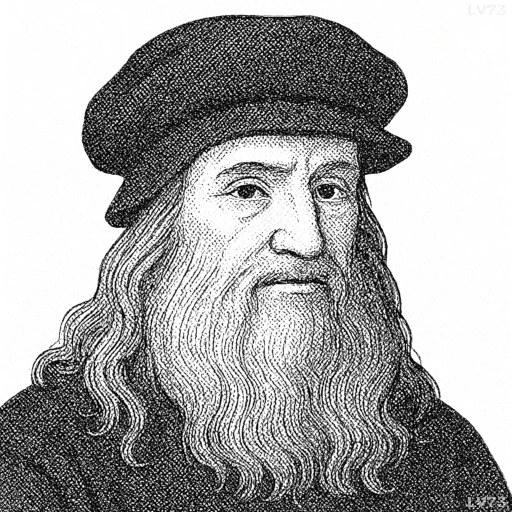“Men of lofty genius when they are doing the least work are most active.”

- April 15, 1452 – May 2, 1519
- Italian
- A versatile man (painter, sculptor, architect, inventor, scientist, etc.)
table of contents
Quote
“Men of lofty genius when they are doing the least work are most active.”
Explanation
In this quote, Leonardo da Vinci suggests that individuals of great intellect or creative genius are often most productive and active when they appear to be doing the least physical or tangible work. This is because the most significant work of such individuals often happens in the mind—through contemplation, reflection, and the process of thinking. The genius is not necessarily focused on immediate action or visible results but is instead deeply engaged in mental activity, refining ideas and concepts, and formulating solutions. Da Vinci is pointing out that for creative minds, true productivity often occurs in periods of quiet reflection rather than through constant physical effort or apparent work.
Historically, this idea reflects Da Vinci’s own approach to creation and innovation. As a polymath, Da Vinci spent extensive time thinking, observing, and reflecting before beginning his artistic or scientific endeavors. Many of his great works, whether in art or engineering, were first conceived in his mind and only later materialized in tangible forms. The Renaissance itself was a period that highly valued intellectual inquiry and the reflection that drove innovation and creativity.
In modern terms, this quote underscores the importance of mental work in creativity and problem-solving. Whether in design, writing, entrepreneurship, or science, the most innovative individuals often spend significant time in reflection, allowing ideas to form and gestate before acting on them. This highlights that thinking—often perceived as “doing nothing”—can be the most active and productive period of work. Da Vinci’s insight encourages us to recognize the value of mental effort and reflection in the creative process, understanding that genius often works quietly, behind the scenes, laying the groundwork for breakthroughs that later seem like effortless accomplishments.
Would you like to share your impressions or related stories about this quote in the comments section?



